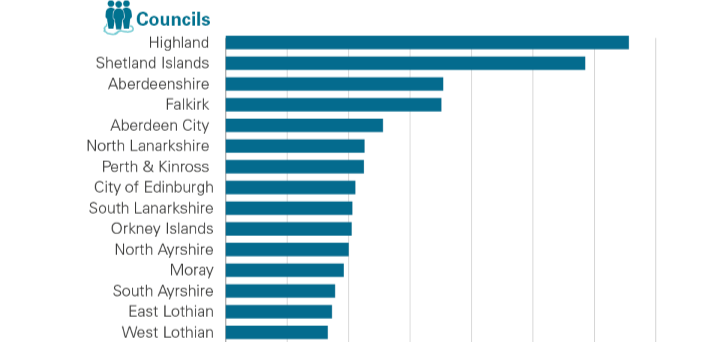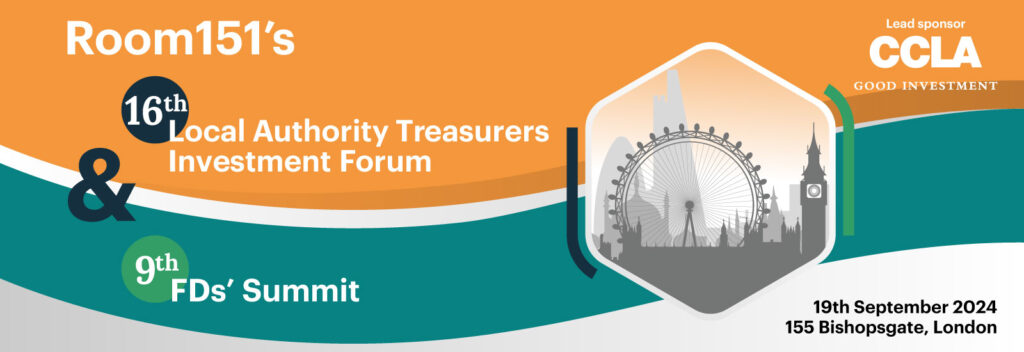Scotland’s councils are facing a budget gap of £585m this financial year, which could rise to £780m by 2026/27.
The Accounts Commission, which revealed the figures in a budget briefing prepared by Audit Scotland on the performance of local government in Scotland, said “ever tougher decisions” would have to be made to ensure councils are financially sustainable, with planning and delivering on transformational change “vital”.
This year’s budget gap represents approximately 3.5% of councils’ total revenue budget. Councils are addressing this most commonly by making ongoing savings, using reserves and raising money through charging citizens for some services.
Above: An Accounts Commission video summarising the key points of its budget briefing.
The cumulative budget gap of £780m by 2026/27 represents 5% of councils’ revenue budget, making it “important for councils to deliver their planned savings in 2024/25 given the significant challenges they face in balancing their budgets in subsequent years”, the Accounts Commission noted.
In real terms, the 2024/25 Scottish Budget allocation of total revenue funding to local government has increased by 5.7%, but funding remains constrained as most of the increase is directed funding to deliver Scottish government priorities and agreed pay deals, the budget briefing noted.
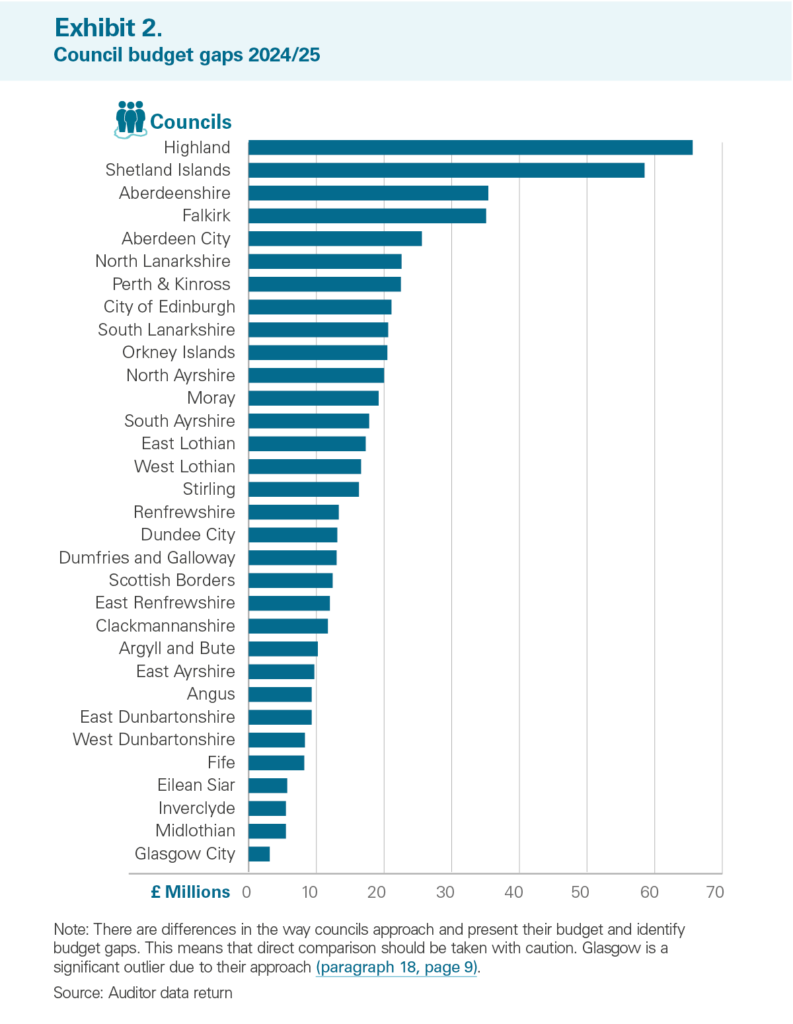
The increase therefore “masks significant underlying financial challenges and strain”, the Accounts Commission said, with “almost all the increases in funding have been ring-fenced for policies and to cover the costs of pay increases in 2023/24”.
Most councils were proposing to increase their budgets by raising council tax rates for 2024/25 but in October 2023 the Scotland’s government announced a council tax freeze. Although the Scottish Budget included £144m to ‘fully fund’ a 5% increase in council tax, and an additional £63m was offered in February 2024, 11 councils said the funding provided would not ‘fully fund’ the freeze, according to the Accounts Commission.
Derek Yule, member of the Accounts Commission, said it was “getting harder for councils to do more with less”. He commented: “They have to find and then deliver significant levels of savings to address budget gaps. Fully engaging with local people and being clear about the different and difficult budget choices is vital, whilst understanding the impacts on the most vulnerable.”
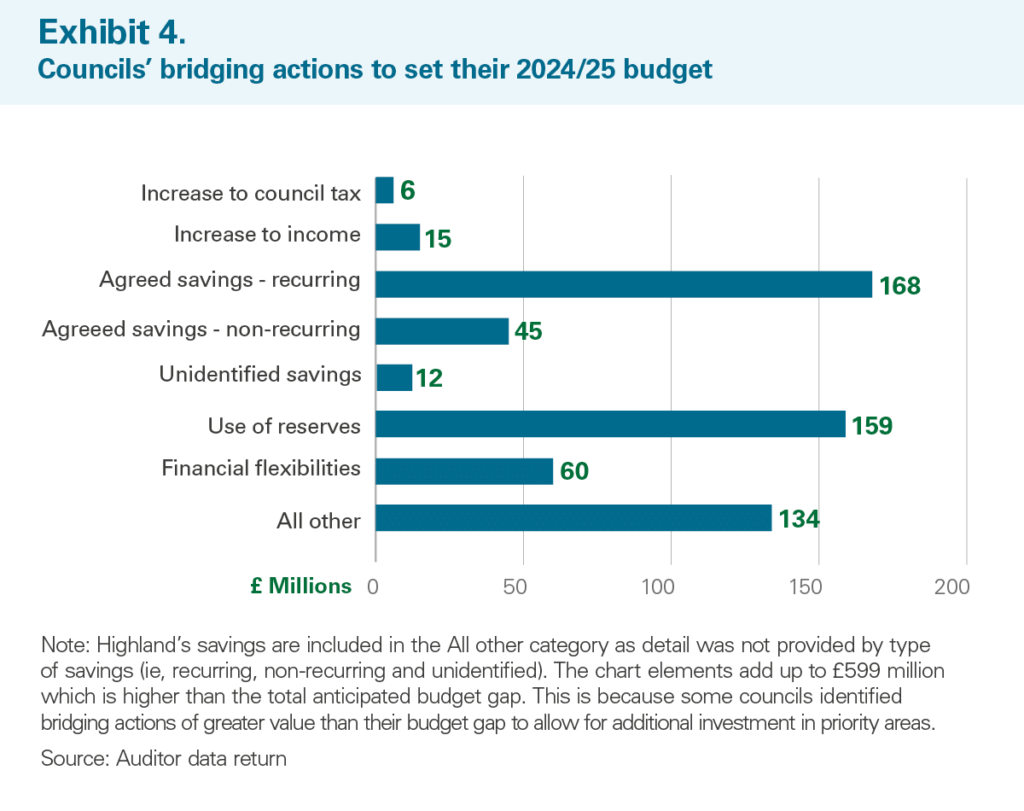
This is the first year the budget briefing has been produced, and is the result of analysis of the 2024/25 budgets which have recently been agreed by Scotland’s 32 councils. The Accounts Commission said the “wide range” of approaches councils take to budget setting and the level of information, and the way that it is publicly reported, made it “challenging to report a definitive national position”.
Yule said Scottish councils must improve the way in which they present financial information, “and do this in a clear, consistent and accessible way”.
He said: “The Accounts Commission calls on councils to increase the accessibility and transparency of publicly available budget information. This will allow for improved comparison between councils, particularly around key information including actions to tackle existing and future budget gaps, as well as savings plans.”
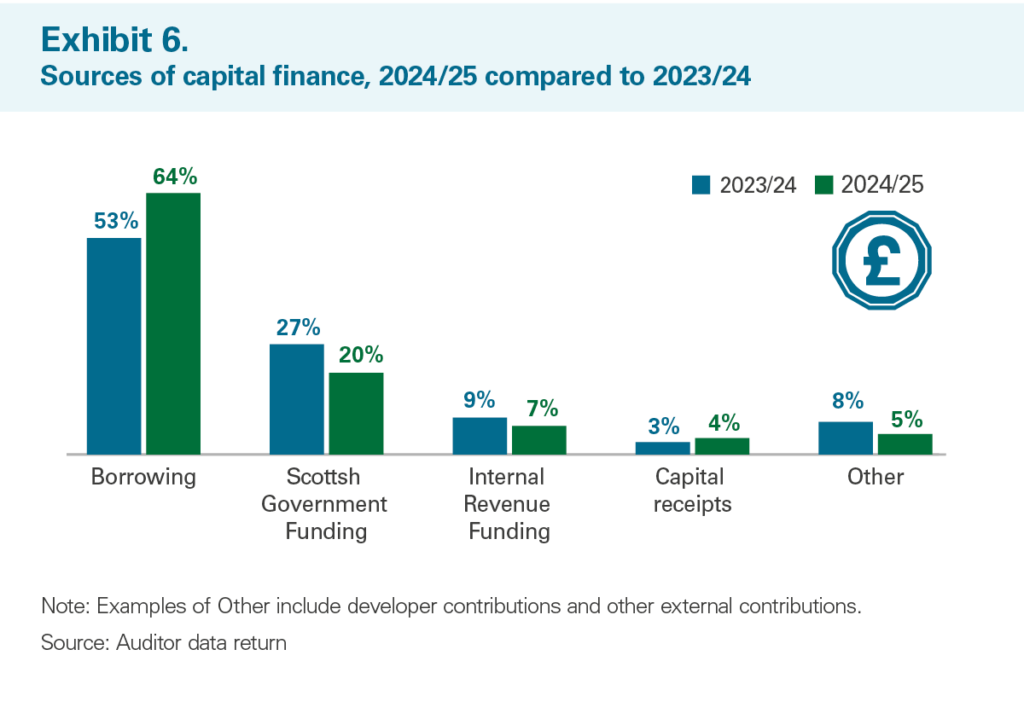
COSLA: A ‘never more challenging’ situation
Reacting to the Accounts Commission’s budget briefing, COSLA, a councillor-led, cross-party organisation championing the work of Scotland’s councils, called for a “real and meaningful solution to the long-term issue of the underfunding of Scottish local government”.
COSLA said a solution was necessary “in order to protect the essential front-line services of our communities”.
COSLA’s resources spokesperson Katie Hagmann said the budget briefing reinforced what COSLA “has been saying about council finances and the severe challenges Scotland’s councils face in trying to balance the books and deliver essential front-line services”.
She commented: “It is vitally important that these concerns, which have been consistently raised by COSLA Leaders and are now backed up by evidence presented by the Accounts Commission, are acted upon for the sake of Scotland’s public services and our communities who rely upon them.
“Now is the time to take real action. Today’s Accounts Commission report is an accurate portrayal of where we are now. The reality right now for councils has never been more challenging. The effect of years of real-terms cuts to core budgets have been compounded by additional policy commitments and less flexibility in how we allocate increasingly directed budgets. This makes the ability to take local decisions on most of our budget, almost impossible.”
Hagmann concluded: “We must seek a sustainable solution to these long-term issues in order to protect the essential front-line service of our communities before it is too late.”
—————
FREE bi-weekly newsletters
Subscribe to Room151 Newsletters
Follow us on LinkedIn
Follow us here
Monthly Online Treasury Briefing
Sign up here with a .gov.uk email address
Room151 Webinars
Visit the Room151 channel




